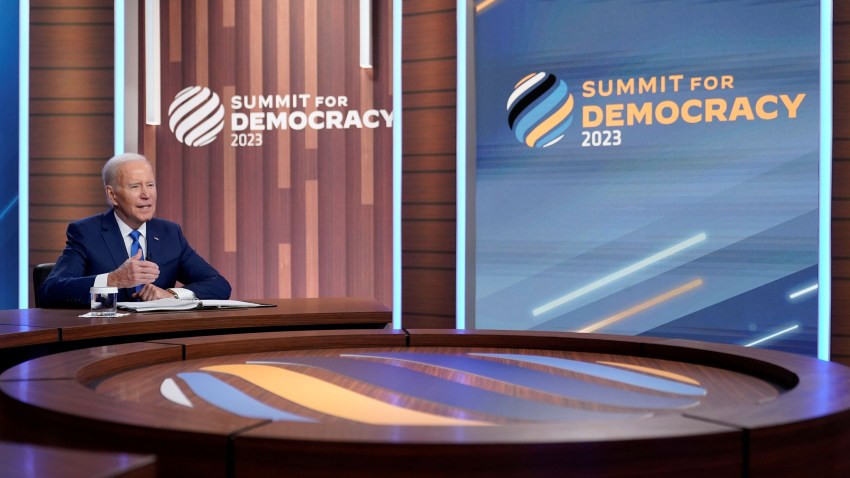With everything that happened last week, from the indictment of former U.S. President Donald Trump to Finland's NATO accession, one could easily have missed what is nevertheless an ostensibly central pillar of President Joe Biden’s foreign policy: the second Summit for Democracy. From the issuing of written commitments to the signing of a joint Summit for Democracy Declaration, this year’s virtual meeting and its 2021 precursor were aimed at encouraging the 100-plus nations in attendance to cooperate in the face of “sustained and alarming challenges to democracy and universal human rights.”
The summit fits with the narrative used by Biden and his administration to portray a global battle pitting “autocracies versus democracies.” As Biden remarked in his first State of the Union address, in this battle, “democracies are rising to the moment, and the world is clearly choosing the side of peace and security.” But even if that is the case, it will not be thanks to this and future iterations of his Summit for Democracy, which, according to critics, risks becoming an “inconsequential talk shop or an unwelcome showcase.” Indeed, I would argue it has already crossed that line.
First, is the summit really about democracies? At the first edition in 2021, several countries with dubious democratic credentials were in attendance, including the Democratic Republic of Congo—its name notwithstanding—and Serbia. While it seems the Biden administration preferred a “big tent” approach to the gathering, that also created an “awkward guest” dynamic, raising reasonable questions about the purpose and utility of the summit. Perhaps that is why it was held virtually, as making the event in-person might have led some countries’ leaders to skip it, out of a sense that the gathering held minimal utility and could prove awkward in its optics.

